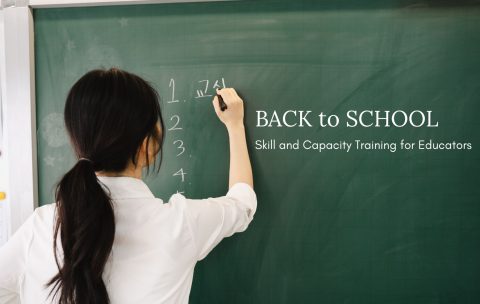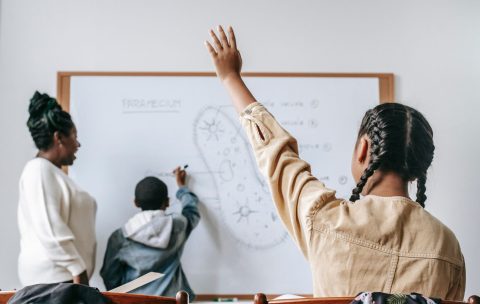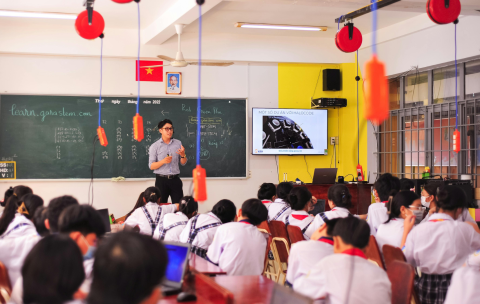All Levels
One-Day International Conclave “A Transition Towards Resilience: Rethinking and Redesigning the Post-COVID Ecosystem for Gen Z”
₹0.00
One-Day International Conclave “A Transition Towards Resilience: Rethinking and Redesigning the Post-COVID Ecosystem for Gen Z”
What you'll learn
To envision a resilient post-COVID ecosystem that supports the emotional, academic, and social recovery of children and adolescents through innovative, inclusive, and forward-thinking approaches.
To highlight global and developmental perspectives on child and adolescent wellbeing—focusing on emotional intelligence, creativity, mental health, digital safety, and education beyond the classroom.
To empower families, educators, and institutions with practical strategies for resilience-building, balanced rights and responsibilities, and navigating academic and psychosocial transitions.
To amplify Gen Z voices and stakeholder collaboration through expert-led panels, moderated interactions, and storytelling that reflect real-life challenges and hopes.
To launch a public movement—‘Reset & Rise’— aimed at rebuilding and reimagining child and youth wellbeing through awareness, policy influence, and community engagement.
Back to School For Teachers
What you'll learn
Phase I: Foundation Skills (20 Hours) – Build core teaching skills in communication, pedagogy, assessment, child development, and creative tools.
Phase II: Advanced Pedagogical Competence (20 Hours) – Deepen teaching methods with inclusive strategies, tech integration, and reflective practices.
Phase III: Placement Readiness (20 Hours) – Prepare for jobs with resume building, interview skills, emotional intelligence, and teaching demos.
Back to School program for Teacher Assistants
What you'll learn
Phase I: Foundation Skills (15 Hours) – Learn the basics of child development, classroom etiquette, school operations, and the key role of a teacher assistant.
Phase II: Practical & Technical Classroom Skills (15 Hours) – Gain hands-on skills in educational technology, computer use, supporting learning activities, and inclusive practices.
Phase III: Job Readiness & Professional Conduct (10 Hours) – Prepare for employment through resume building, interview skills, professionalism, and real classroom simulations.
Why Ages 2–7 Matter So Much for Brain Development?
What you'll learn
Understand early brain development (ages 2–7) and why this stage builds the foundation for learning, emotions, and behavior.
Identify key developmental milestones in thinking, language, emotions, and social skills during early childhood.
Explore how early experiences, attachment, and play shape the brain through neuroplasticity and influence personality.
Beginner
Decoding the Teenage Brain : Episode 2: Emotions on Fire – The Power of the Limbic System
₹0.00
Decoding the Teenage Brain : Episode 2: Emotions on Fire – The Power of the Limbic System
What you'll learn
How the amygdala and limbic system influence teen emotions and behavior
Why teenagers often experience strong emotional reactions and mood swings
The impact of hormones, peer pressure, and the need for social acceptance on adolescent decision-making
How to recognize emotional triggers and support teens in managing their feelings
Practical strategies to respond with empathy and guidance, not control or criticism
Beginner
Decoding the Teenage Brain – Episode 3 -Sleep, Screens & Stress – The Invisible Brain Strain
₹0.00
Decoding the Teenage Brain – Episode 3 -Sleep, Screens & Stress – The Invisible Brain Strain
What you'll learn
How circadian rhythm changes affect teen sleep, attention, and memory
The link between screen use, dopamine reward systems, and digital dependence
How stress and anxiety affect the developing teen brain
Warning signs of emotional and cognitive overload in adolescents
Ways to support healthy habits, tech boundaries, and stress management
Beginner
Decoding the Teenage Brain – Episode 4: The Learning Brain – Motivation, Memory & Mindsets
₹0.00
Decoding the Teenage Brain – Episode 4: The Learning Brain – Motivation, Memory & Mindsets
What you'll learn
How the adolescent brain changes through neuroplasticity and experience
The impact of motivation, praise, and feedback on teen learning
Ways to cultivate resilience, emotional regulation, and persistence
How to use everyday challenges to build a growth mindset
Strategies to make learning engaging, purposeful, and brain-friendly
Expert
Pedagogical Strategies for Effective Teaching -Session 1: Understanding the Foundations of Pedagogy
₹0.00
Pedagogical Strategies for Effective Teaching -Session 1: Understanding the Foundations of Pedagogy
What you'll learn
The meaning and importance of pedagogy in modern classrooms
Key learning theories: Behaviorism, Constructivism, Bloom’s Taxonomy
How to identify and adapt to visual, auditory, and kinesthetic learning styles
Strategies to align teaching methods with diverse student needs
Practical tools to reflect on and enhance your instructional approach
Expert
Pedagogical Strategies for Effective Teaching – Session 2: Active Learning & Student Engagement Techniques
₹0.00
Pedagogical Strategies for Effective Teaching – Session 2: Active Learning & Student Engagement Techniques
What you'll learn
How to make classrooms more interactive using collaborative and cooperative learning
Techniques like Think-Pair-Share, Jigsaw, role-play, and gamification
The art of questioning through Socratic dialogue to deepen thinking
Designing participatory lessons that boost engagement
Expert
Pedagogical Strategies for Effective Teaching-Session 3: Differentiation, Inclusion & Classroom Management
₹0.00
Pedagogical Strategies for Effective Teaching-Session 3: Differentiation, Inclusion & Classroom Management
What you'll learn
Implementing strategies to support mixed-ability and diverse learners
Applying Universal Design for Learning (UDL) to build inclusive classrooms
Managing routines, transitions, and using positive reinforcement effectively
Planning for equity through real-life classroom scenarios
Expert
Pedagogical Strategies for Effective Teaching -Session 4 : Building Competence in Assessment and Reflective Teaching
₹0.00
Pedagogical Strategies for Effective Teaching -Session 4 : Building Competence in Assessment and Reflective Teaching
What you'll learn
Differences between formative and summative assessments
Creating rubrics and using peer/self-assessment tools
Developing reflective habits through journaling and teaching portfolios
Using feedback constructively to improve teaching practice
- 1
- 2














